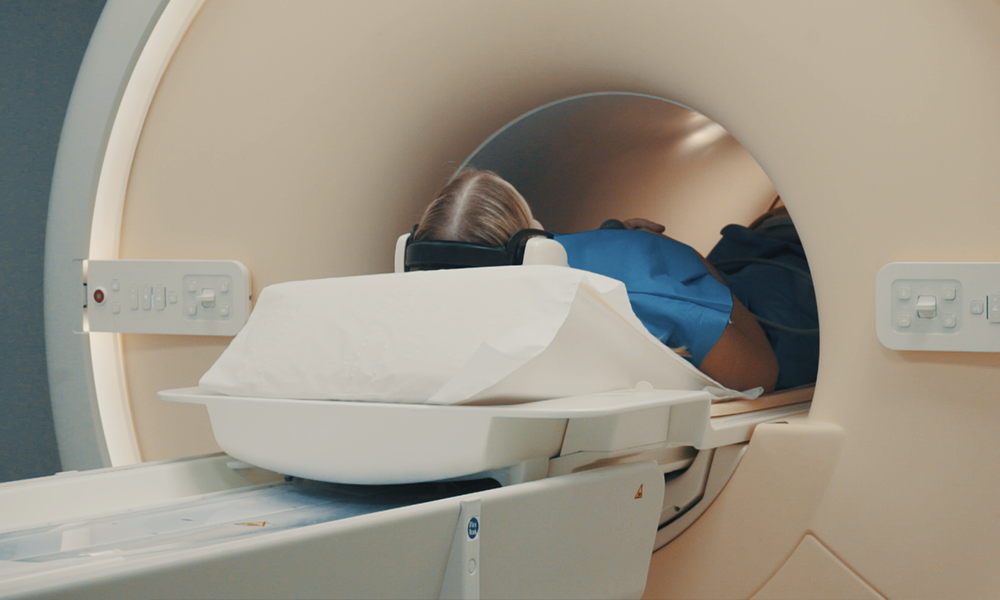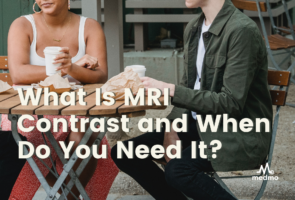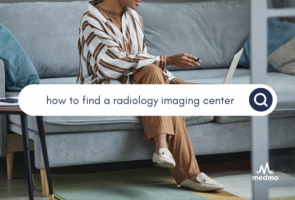
How Long Does an MRI Take?
Just the idea of an MRI can be scary: lying on that platform, being trapped inside that tube, worrying about what they might find. And the time question: How long am I going to be in that thing? Getting an MRI is a procedure that can be quick or can take a few hours, so estimating time is a little trickier than knowing the doctor usually sees people for fifteen minutes. Here, we will go through some of the things involved with getting an MRI, all of which can influence the time required for the appointment.
Getting Ready
Account for your travel time and the wait time at the clinic (and you will want to find an MRI machine near you), of course, but an MRI is a procedure that requires a little preparation, and that can add to the time it takes. The MRI scanner is a big and extremely powerful magnet, which means you will probably have to change into a hospital gown and leave your clothes and belongings behind while you’re having your MRI done. Most clinics provide lockers, cubbies, or some other way to keep your stuff safe. While it can be a little stressful getting changed and leaving your stuff, it is certainly better than your house keys breaking a very expensive machine.
At some point during this process, you will talk to the technologist running the procedure and go over things like any metals in your body, your comfort with the procedure, and any concerns you may have. This is a good time to clarify anything you would like clarified and express any doubts or concerns.
Do you need a contrast MRI?
“Contrast” is a fluid that enhances the quality of the image and makes it easier to read by making areas of the body stand out more. It does require an injection, but it usually means you only need one MRI scan instead of several due to the improved quality and clarity of the image. The “dye”–don’t worry, it is not actually dye, none of your organs will be left funny colors–makes tissues show up more on the image, so it is easier for the radiologist to find what they are looking for. Whether you need the contrast for your MRI is up to the doctor and depends on the type of procedure and your particular health conditions. Contrast fluid is very safe.
However, if you’re worried about how long your MRI takes, if you need a contrast MRI, it may take a little more time at the clinic due to the injection or IV, depending on the particulars of your procedure. MRI technologists usually help with the exam. Most of them can also start IVs, if an IV is needed and perform CPR in addition to helping with the MRI exam.
The contrast material helps show things like:
- Tumors
- Inflammation
- Infection
- Blood vessels
- Blood flowing to certain organs
What kind of MRI machine are they using?
There are two major types of MRI machine: closed MRI and open MRI.
The closed MRI is the one you are probably most familiar with. Patients lie on a platform that moves them into a big, enclosed tube, then lie there for the length of their MRI procedure. These take extremely high-quality and very detailed images, but come with the downside of patient experience. Most people do not enjoy lying in a very enclosed and frequently noisy space for a long time. Some people experience claustrophobia or have panic attacks in the closed MRI, which is not only unpleasant, it can also make the exam take longer. This is because moving around can make it hard to get a clear image, so the cruel irony is the more you fidget and freak out, the longer you’re stuck in the tube making you fidget and freak out.
A related type of MRI scanner is the wide-bore MRI. These are still the “big tube”-style MRI, but have a little more space inside. These can be a good compromise between image quality and personal comfort.
The open MRI are, as the name implies, open on all four sides. They can still take an MRI image, but the quality may not be what it is on a closed MRI scan. Some scans require a closed MRI, so it is worth discussing with your provider the nature of the scan, your fears and anxiety, and what a solution might be. There may be less claustrophobia in an open MRI machine, but it may not be possible for what you need. On the other hand, it may be worth suffering the claustrophobia in a closed MRI if it gets you a better image, a more accurate diagnosis, and takes less time.
What kind of procedure are you having?
Okay, we have gotten to the clinic, changed into the gowns, made sure all our metal things are safely stowed, and are full of contrast fluid. Now it is time to get into the MRI machine. How long is the MRI exam going to take?
As with all things medical, the answer to this is “It depends”.
- If they are looking at your brain or spine, that can run about 45 minutes. A contrast MRI for the brain or spine may take about 15 minutes longer.
- For a body MRI, that can take 45 minutes to an hour. However, there are breathing instructions to follow as these can help get a good quality image and failure to follow those instructions can mean more time in the tube.
- A cardiac MRI can take longer. Motion makes it harder for the scanner to get a good image and (fortunately!) your heart is basically always in motion. Obviously, it is much more of a problem if your heart is not moving. That and the motion of your breathing mean the exam can take 90 minutes to 2 hours to get a clear, workable image.
- For joints like the knee, ankle, hip, elbow, or wrist, it can take 25 to 45 minutes. The particulars of the joint and procedure can make the time vary widely. For example, a longer bone like your femur may take longer to get good images than something relatively small like your knee.
- Breast imaging may take 45 minutes to an hour, with more time needed if a biopsy is required. This depends on the shape and size of the breasts. Most breast MRIs do require the injection of contrast, when can add to the preparation and wait time in the clinic.
Generally speaking, you will want to remain still while you are in the machine. Movement in the MRI machine interferes with the quality of the image, which makes it take more time.
Other factors include:
- The number of images required for a good look at the problem. If the doctor needs a lot of images, it takes more time for the machine to get those images.
- The size and complexity of the body part being scanned. Simply put: it takes more time to get a bigger picture with the level of detail required.
- Any instructions you may need to follow. For example, there may be times you need to hold your breath or breathe a certain way for the machine to get good images.
Did you need sedation?
MRI procedures are non-invasive and usually do not have healing time beyond the time needed for an IV or injection mark to heal up.
People that do not need sedation or anti-anxiety drugs can leave once they change back into their street clothes and otherwise wrap up things at the clinic. If you needed or wanted sedation or a calming drug to make it through the scan, it may take longer to leave. Many clinics want to be sure you have come out of sedation and most will require someone else driving home, which is something to keep in mind during the planning phase of the procedure. Generally, it is a good advice to not drive for 24 hours after getting sedative medication.
1 https://health.ucdavis.edu/radiology/mymri/mymri-faq.html
2 https://www.nhs.uk/conditions/mri-scan/what-happens/
3 https://www.gehealthcare.com/insights/article/what-is-mri-contrast
4 https://health.ucdavis.edu/radiology/mymri/mymri-faq.html
5 https://my.clevelandclinic.org/health/diagnostics/4876-magnetic-resonance-imaging-mri
6 https://www.independentimaging.com/open-mri-vs-closed-mri-difference-one-best-suited/
7 https://health.ucdavis.edu/radiology/mymri/mymri-faq.html
8 https://www.cochiseoncology.com/blog/how-long-does-an-mri-take/
9 https://www.nhs.uk/conditions/mri-scan/what-happens/
Ready to get started?
Here’s what you’ll need to schedule an appointment
1. Imaging referral / prescription
2. Your contact information
3. Insurance OR card information


